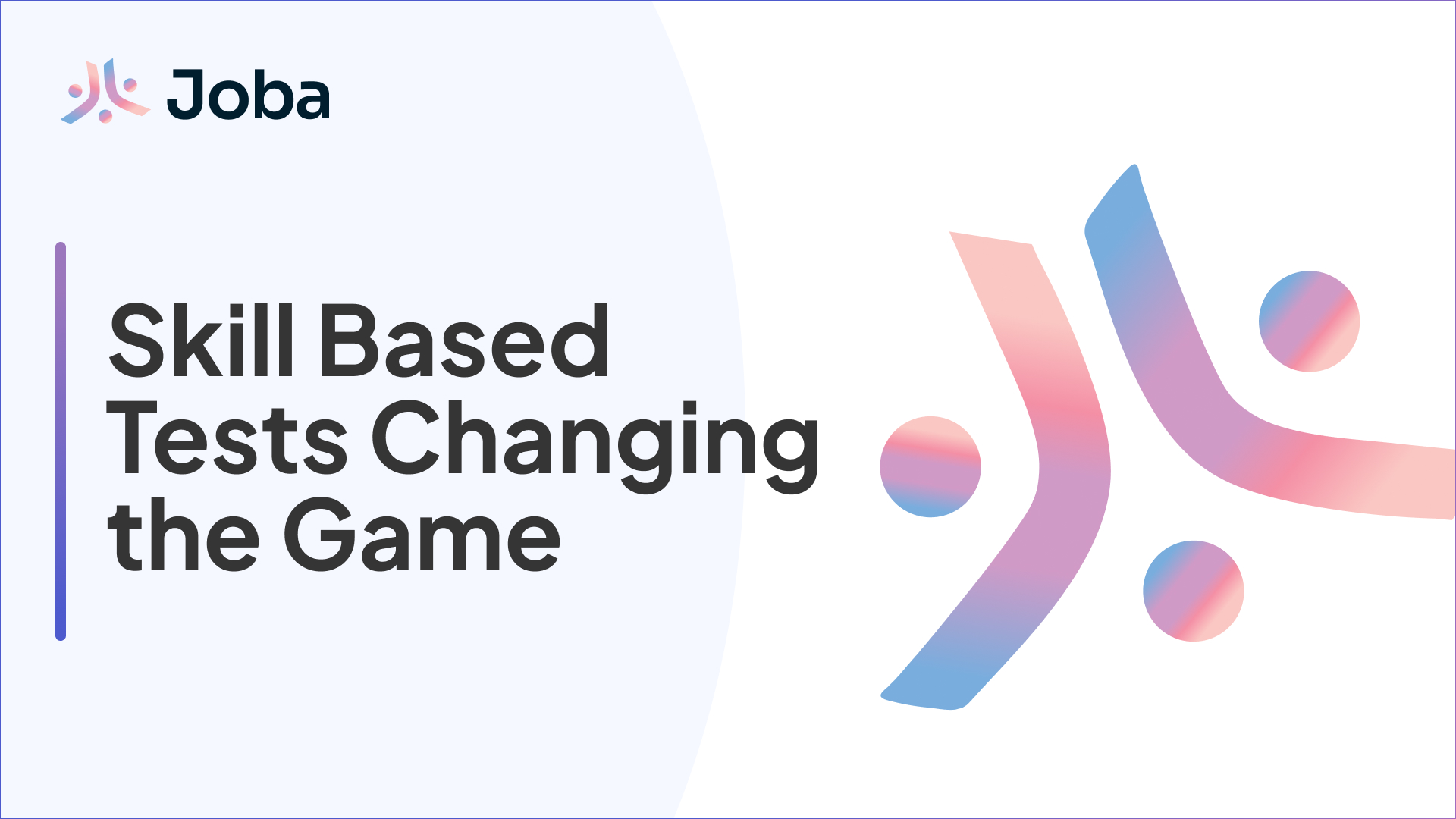Simplifying Skill Validation: A Game-Changer with SBTs

In today's rapidly evolving job market, the need for accurate skill validation has never been more crucial. Employers seek talent with specific competencies, and job seekers aim to showcase their abilities effectively. This demand for precise skill assessment has led to the rise of Skill-Based Testing (SBT) as a game-changing approach.
The Traditional Challenge
Historically, assessing a candidate's skills has been a challenging process. Traditional methods relied heavily on resumes, interviews, and references, leaving room for inaccuracies and biases. Employers often face difficulties in verifying if a candidate's claimed skills match their actual abilities. Conversely, job seekers struggled to prove their competence convincingly.
The Emergence of SBTs
SBTs are designed to address these challenges head-on. They offer a structured and standardized way to evaluate an individual's skills and knowledge in a particular domain. Unlike conventional assessment methods, SBTs are tailored to the specific requirements of a role or industry, providing a more accurate representation of a candidate's capabilities.
How SBTs Work
SBTs typically consist of a series of tests or tasks that directly assess the skills relevant to a job. These assessments can cover a wide range of abilities, from technical proficiencies like coding or data analysis to soft skills such as communication and problem-solving. The key to SBTs is their practical nature – they require candidates to demonstrate their skills in real-world scenarios.
The Benefits of SBTs
1. Precision and Objectivity
One of the most significant advantages of SBTs is their objectivity. They rely on measurable outcomes rather than subjective judgments, reducing the potential for bias in the evaluation process. Employers can trust that the results accurately reflect a candidate's skills.
2. Time and Cost Efficiency
SBTs streamline the recruitment process. They eliminate the need for time-consuming interviews and reference checks, allowing employers to make faster hiring decisions. Additionally, SBTs are often more cost-effective than traditional assessments.
3. Customization
Each role may require a unique set of skills. SBTs can be customized to match these requirements precisely. This ensures that candidates are evaluated based on the skills relevant to the job, making the hiring process more efficient.
4. Candidate Empowerment
Job seekers benefit from SBTs as well. They have the opportunity to showcase their skills in a tangible way, providing evidence of their capabilities to potential employers. This empowers candidates to stand out in a competitive job market.
The Future of Skill Validation
As industries continue to evolve and demand increasingly specialized skill sets, the importance of accurate skill validation will only grow. SBTs are at the forefront of this evolution, offering a reliable and efficient solution for both employers and job seekers.
Challenges and Adaptations
While SBTs offer numerous advantages, they are not without challenges. Designing and implementing effective SBTs requires careful planning and expertise. Developing a fair and comprehensive assessment that accurately reflects the job's requirements can be complex. Additionally, candidates need access to resources and support to prepare for SBTs successfully.
Employers are adapting to these challenges by investing in comprehensive SBT development processes. This includes collaborating with subject matter experts to define assessment criteria, leveraging technology for efficient testing, and providing candidates with guidance and practice resources.
SBTs Across Industries
SBTs are not limited to a specific sector. They are being embraced across various industries, including technology, healthcare, finance, and more. In the tech sector, coding challenges and technical simulations are common SBTs. In healthcare, clinical simulations and patient case studies are used to evaluate medical professionals' skills.
The Role of Technology
Advancements in technology have played a pivotal role in the widespread adoption of SBTs. Online platforms and assessment tools have made it easier to administer tests and evaluate results efficiently. This accessibility has expanded the reach of SBTs, allowing employers to assess candidates from diverse geographic locations.
The Continuous Evolution of SBTs
As industries continue to evolve and adapt to changing demands, SBTs will evolve as well. Future developments may include more sophisticated simulations, AI-driven assessments, and real-time performance evaluations. These innovations will further enhance the accuracy and efficiency of skill validation.
In conclusion, Skill-Based Testing is changing the game by simplifying skill validation. Its precision, efficiency, and customization make it a valuable tool in today's competitive job market. As the need for accurate skill assessment continues to rise, SBTs are poised to play an even more significant role in shaping the future of recruitment and talent acquisition. The continuous evolution of SBTs will ensure their relevance in a rapidly changing professional landscape.
Ready to supercharge your career with skill validation? Explore the future of professional growth with Joba Network. Join us today and unlock a world of opportunities!
Frequently asked questions
No, some industries like health care and manufacturing require physical presence. But many fields, especially in tech and marketing, are well-suited for remote work.
Not necessarily. Many remote jobs offer competitive salaries and benefits.
There are various job boards dedicated to remote work, such as We Work Remotely and Remote OK.
The key is to set a routine, create a dedicated workspace, and use productivity tools to stay on track.
Tools like Slack, Zoom, and Asana are invaluable for remote work, aiding in communication and project management.




